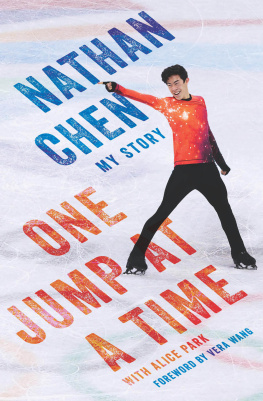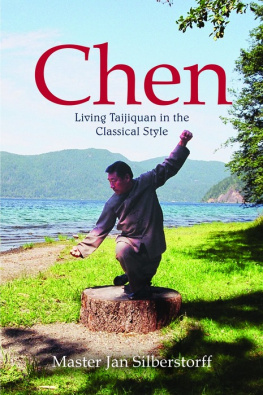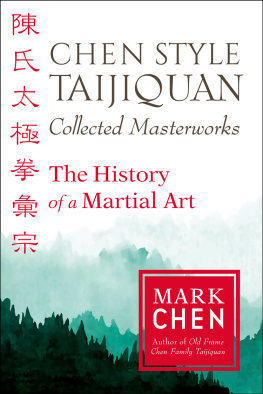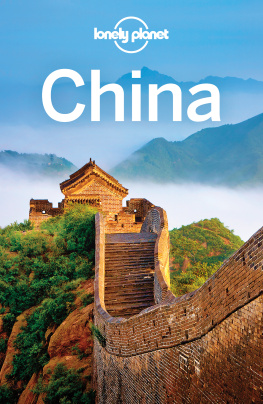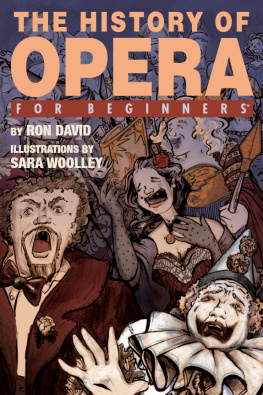
Copyright Foreign Language Teaching and Research Press 2013
All rights reserved. No part of this publication may be reproduced or distributed by any means, or stored in a database or retrieval system, without the prior written permission of Foreign Language Teaching and Research Press.
Published by Foreign Language Teaching and Research Press
No. 19 Xisanhuan Beilu
Beijing, China 100089
http://www.fltrp.com

CIP
Qin Xianglian: A Bejing Opera2013.9
ISBN 978-7-5135-3636-3
--J821
CIP2013233850
19100089
http://www.fltrp.com
ISBN 978-7-5135-3636-3
01088817519
Table of CONTENTS
Preface to the Project
There are two Chinese terms that describe the dramatic performance on the stage in China: xiju and xiqu . The former is equivalent to the dramas in the West while the latter, frequently referred to as the Chinese national operas or Chinese local operas, is a native Chinese invention. Xiju , an imported art form from the Western literature, was introduced into China during the second half of the 19th century. Xiqu , on the other hand, has a much longer history.
As one of the three ancient dramatic forms in the world, Chinese national operas, together with ancient Greek tragedy and ancient Indian drama, have a long history of over two thousand years. It can be traced back to three types of primitive entertainment in China: exorcising dance, storytelling and ballad singing and comic dialogues. As early as the Qin Dynasty (221-206 BC), an art form began to emerge with all the three types of entertainment combined to give public shows, sometimes in the royal palaces and sometimes in Buddhist temples. It was recorded during the reign of Emperor Yang Guang (604-618 AD) of the Sui Dynasty (581-618 AD) that performers all over China were summoned by the emperor to provide entertainment from January 1st to 15th annually according to the Chinese lunar calendar. To prepare for the performance, stages were erected and lined up, stretching sometimes as long as four kilometers outside the imperial palace, a scene with a scale and grandeur that can hardly be imagined even in the 21st century. Gradually, other elements were added to the art form, encompassing acrobats, martial arts, dancing, puppet shows and leather-silhouette shows. It was not until the 13th century that the prototype of Chinese national operas finally began to take shape. Right now, there are as many as three hundred different types of Chinese national operas active on the Chinese stage, attracting millions of theater-goers, both men and women, old and young. Xiqu is definitely one of the crown jewels in Chinese culture.
The idea of introducing Chinese xiqu to the audience outside China has been brewing in my mind for quite some time, commencing in the mid-1980s when I was working on my Ph.D. dissertation in the United States. Since my dissertation, with the title of Shakespeare Through Chinese Eyes , is a comparative study of Shakespeare scholarship in China with that in the West, I reviewed more than three hundred introductory and critical essays of Shakespeare written by the Chinese scholars in the course of eighty years. While browsing these scholarly works, I suddenly felt an irresistible urge to introduce Chinese threatrical dramas to the audience of the West by translating and publishing a collection of xiqu in the United States. However, my first attempt was not successful since my proposal was declined by some American publishers on the ground that such a book would be too scholarly to attract local readers. I only managed to have a part of my first chapter published in Shakespeare Quarterly as the leading essay in the Summer issue of the journal in 1986 with a note from the editor. But my initial idea has never wavered as I firmly believe that there is definitely an interest in the West in this area and I will wait for the "right time" to offer the "right" contents in a "right" way for the "right" audience.
Now, the moment I have been waiting for has finally come. After two years of preparation, "The Project for Disseminating Chinese Operatic Dramas Overseas" was eventually launched in October 2008 at Renmin University of China. The Project, which I am in charge of, is joined by a dozen of scholars who are proficient in both Chinese and English languages to work under my direct supervision. With the secured funding, the participation of the well-established scholars and the guaranteed publisher, I am enabled to expand my initial plan of simply translating a score of Chinese dramas into a more ambitious project with the following characteristics.
First, each drama is introduced as a book-length work. Instead of a simple translation project, the rendition of the opera script only takes up a small fraction, one third or one fourth, of the book. The focus of the book is on the cultural elements embodied in this particular form of the opera, which include but are not limited to narrative and dramatic sources of the opera, the authorship of the literary work, the dissemination of the literary work, the theatrical performance, the historical evolution of the opera and its various characteristics, stage practice and cultural interpretation of the story or the legend. In other words, the translated drama serves as a springboard of introducing Chinese culture. To achieve this goal, efforts have been made by a team of researchers to prepare sufficient raw materials for each perspective writer/translator before he or she embarks on a book.
Second, I make sure that each play script chosen for the book is of the authoritative version. The authorship of a Chinese operatic drama is quite different from that of a Western opera. In the West, the authorship has been a non-issue. The fact that La Traviata was composed by Verdi or La Boheme by Puccini has never been put to question. In China, however, it is often the case that both the libretto and the music of an opera were composed by an anonymous author, and subsequent performers are free to adapt the original version into a new one. For most of the theater-goers in China, they come to the theater not to watch the gradual unfolding of the plot or the theatrical conflict of the drama; rather they are only interested in the performance of the leading actor or actress. A particular drama becomes famous due, in most part, to the particular performing style of a leading opera singer. As a result, one opera may end up, in the course of its evolution, with various versions with different librettos, different performing styles and different musical tunes. To present the most authoritative version of an opera, we have selected the script written by the well known literati and the drama performed by the most prestigious actors and actresses. The selection is made by the distinguished scholars and specialists in the field of Chinese national operas.
Finally, we have designed the project for what both Samuel Johnson and Virginia Woolf called "the common reader." Our targeted audience is the general public outside China, people who have a genuine interest in the Chinese culture. It is a prerequisite for all the authors to increase their "audience awareness," a catch phrase in the US college writing class, which emphasizes the analysis of audience in terms of how much information is necessary to get one's message across. Specially, authors are required to select the materials that appeal to the targeted audience and present them in a way that can be easily understood by the people who have no prior knowledge of Chinese national operas and culture. As a result, instead of a simple translation of the opera script, each work of the project is a creative writing loaded with background information and explanation to help "the common reader" to better understand and appreciate the opera introduced in the book.
Next page

